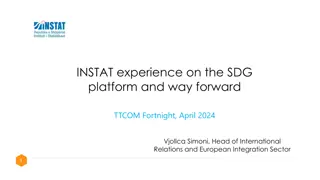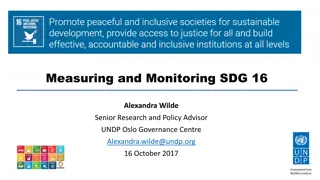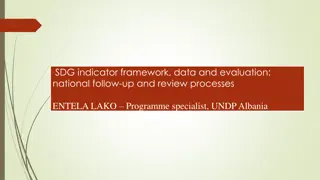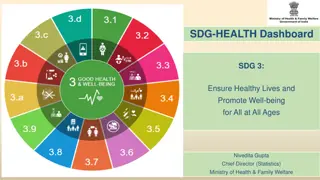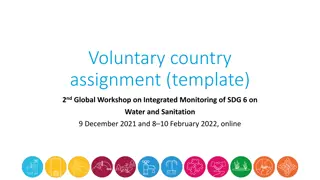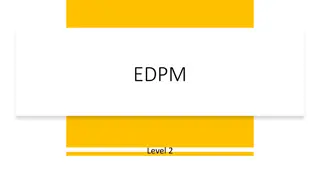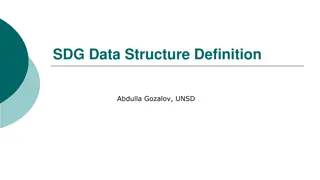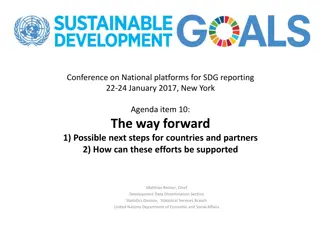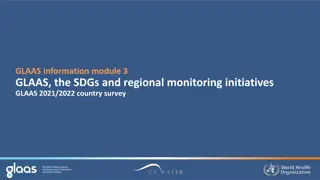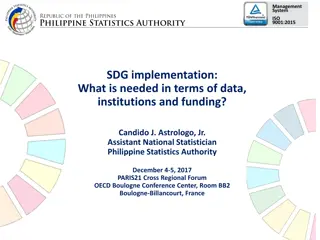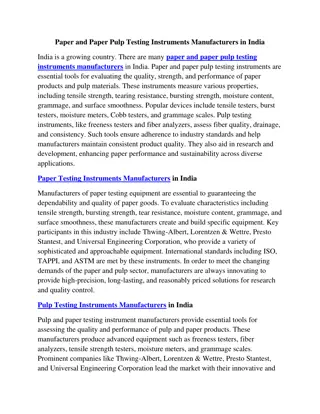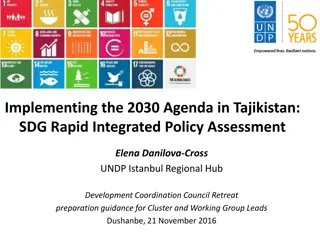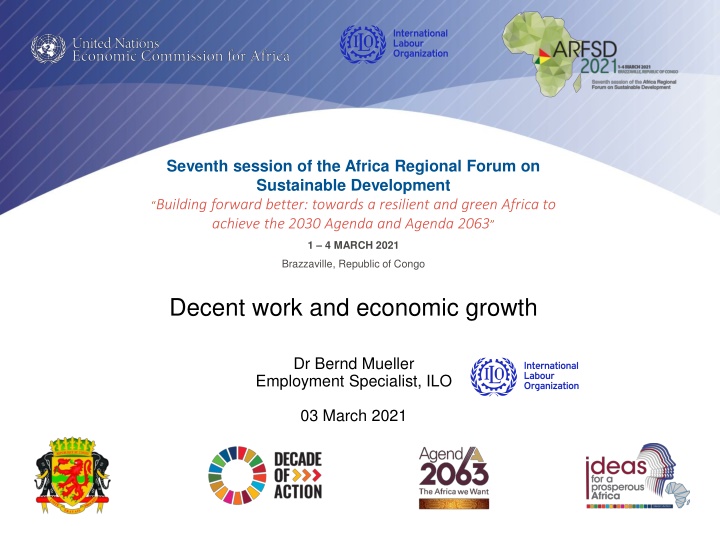
Building Resilient and Green Africa: Insights from the 7th Africa Regional Forum
The 7th Africa Regional Forum highlighted the importance of promoting decent work and economic growth in Africa to achieve the 2030 Agenda and Agenda 2063. Issues such as the impact of COVID-19 on labor markets, challenges of structural transformation, and the need for social dialogue were discussed, emphasizing the opportunity for a job-rich, inclusive, and sustainable recovery in African countries.
Download Presentation

Please find below an Image/Link to download the presentation.
The content on the website is provided AS IS for your information and personal use only. It may not be sold, licensed, or shared on other websites without obtaining consent from the author. If you encounter any issues during the download, it is possible that the publisher has removed the file from their server.
You are allowed to download the files provided on this website for personal or commercial use, subject to the condition that they are used lawfully. All files are the property of their respective owners.
The content on the website is provided AS IS for your information and personal use only. It may not be sold, licensed, or shared on other websites without obtaining consent from the author.
E N D
Presentation Transcript
Seventh session of the Africa Regional Forum on Sustainable Development Building forward better: towards a resilient and green Africa to achieve the 2030 Agenda and Agenda 2063 1 4 MARCH 2021 Brazzaville, Republic of Congo Decent work and economic growth Dr Bernd Mueller Employment Specialist, ILO 03 March 2021
Introduction Aspiration: End poverty Aspiration: Decent Work for All in all its forms everywhere
Aspiration: End poverty Aspiration: Decent Work for All in all its forms everywhere People with decent work deficits People living in poverty
Reaffirms the mutually inclusive relationship between economic, social and environmental policies, poverty reduction, full employment and decent work. People with decent work Goal 8 is inextricably linked to other Goals in the 2030 Agenda for Sustainable Development deficits Promoting Decent Work arguably is one of the most ambitious goals even before COVID-19! in poverty People living
Progress towards SDG8 (please refer to background paper ECA/RFSD/2021/8 for full detail) Economic growth in the African continent not inclusive and fast enough to absorb the growing labour force: labour demand < labour supply !!! (= there simply are not enough productive jobs and business opportunities) Unemployment not the biggest problem. Rather informality, underemployment, and working poverty are. (Many Africans sadly are too poor to be unemployed ) This highlights importance of social protection to protect the most vulnerable Past economic growth has failed to result in structural transformation. The COVID-19 pandemic has greatly exacerbated the underlying labour market challenges and inequalities. Plus widespread shift into inactivity. Women, youth and informal economy particularly hard hit by the crisis The COVID-19 pandemic has highlighted the need to make economies and labour markets more resilient and sustainable It may also provide an opportunity for African countries to craft a job-rich, inclusive, sustainable and equitable recovery through social dialogue among governments, and also organized business and workers!
Key messages to build back better In response to the COVID-19 crisis, facilitate structural transformation and economic diversification enhance the quality/pattern of economic growth through structural transformation, technological upgrading and diversification shifting resources from low value-added activities to those with high levels of value added and employment-intensity AfCFTA as opportunity to drive growth and structural transformation, through greater economic integration in a form that benefits African businesses and workers alike Integrate pro-employment macroeconomic and sectoral policies with explicit employment creation targets to stimulate labour demand and create decent jobs develop and implement employment policies, integrate employment in all their national and sectoral policies employment creation targets must be incorporated in national budgets, monetary policies, investment policies, as well as national development strategies fiscal and monetary incentives are needed to attract investments in productivity-enhancing and employment-intensive sectors should be complemented with social protection systems to build resilience and address extreme poverty Effective interventions to facilitate the transition to formality, and support greater human capital accumulation effective and comprehensive action to achieve transition to formality in line with ILO Transition to Formality Recommendation, 2015 (No. 204) strengthen work-place based learning systems, and reduce skills mismatch enhance active labour market programmes and public employment services 1) 2) 3)
Key messages to build back better (contd) Achieve gender equality and women s empowerment, as well as equal opportunities for persons with disabilities policies to encourage more women to enter the formal sector, targeting specific constraints, incl. lower skill/education levels and lack of access to finance equal opportunities, equal participation and equal treatment, including equal remuneration for women and men for work of equal value; enabling a more balanced sharing of family responsibilities; promoting investment in the care economy Implement the ILO Centenary Declaration and Abidjan Declaration for the Future of Work towards a sustainable recovery from the COVID-19 crisis ILO Centenary Declaration on the Future of Work, and concomitant Abidjan Declaration for Africa, have increased in relevance and should continue to guide Member States work towards SDG 8 4 Pillars of ILO policy framework to tackle COVID-19 crisis provide useful guidance: 4) 5) Pillar 1: Stimulating the economy and employment. Pillar 2: Supporting enterprises, jobs and incomes. Pillar 3: Protecting workers in the workplace. Pillar 4: Relying on social dialogue for solutions.
THANK YOU! mueller@ilo.org Follow the conversation: #ARFSD2021 www.uneca.org/arfsd2021

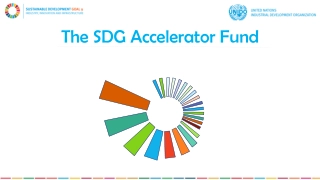
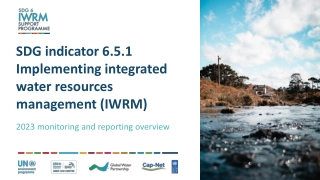
![❤Book⚡[PDF]✔ Doing the Impossible: George E. Mueller and the Management of NASA’](/thumb/21684/book-pdf-doing-the-impossible-george-e-mueller-and-the-management-of-nasa.jpg)

